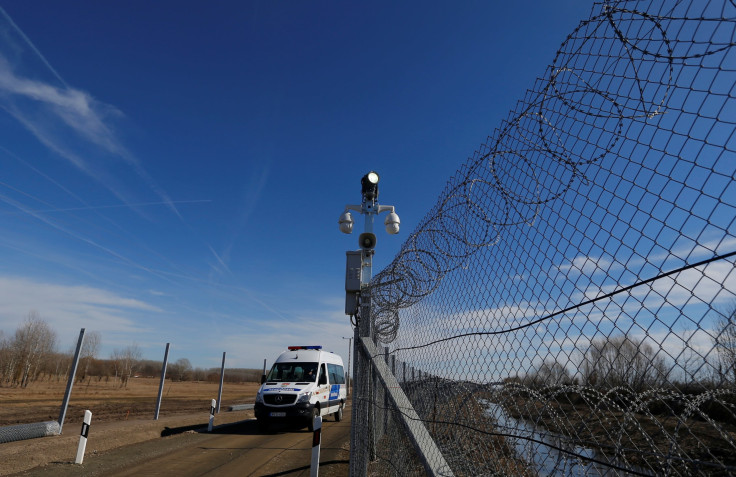Hungary Border Wall Sends Electric Shocks To Undocumented Immigrants

Hungary is building a border wall that can send electric shocks to migrants. Its loudspeakers will blare warnings in various languages: "Attention, attention. I'm warning you that you are at the Hungarian border."
Hungary has been the epicenter of the migrant crisis that sent hundreds of thousands of people flooding into Europe in recent years. At the peak of the migration, Hungary erected a razorwire fence. But now Budapest is going high-tech, Reuters reported Thursday.
The speakers warn travelers: "If you damage the fence, cross illegally, or attempt to cross, it's counted to be a crime in Hungary. I'm warning you to hold back from committing this crime. You can submit your asylum application at the transit zone."
Officials have already built six miles of the structure and hope to cover an additional 85 miles over the next two months. The wall is being built by 700 prison inmates and costs roughly 123 million euros. Hungary Prime Minister Viktor Orban is a supporter of President Donald Trump, who has vowed to build his own border wall along the Mexico-U.S. border.
"The first fence was a quick solution from the government, but not a perfect one as human traffickers come equipped with tools to cut it," said Laszlo Toroczkai, mayor of the border village of Asotthalom. He called the new barrier "far more serious" and "absolutely reassuring."
Migrants crossing into Europe are typically fleeing war zones in Syria, Eritrea, Somalia, Afghanistan and Iraq. Human rights activists have urged European leaders to help people running from death and violence.
"Increased direct resettlement from the countries bordering Syria, notably Lebanon, Jordan and Turkey, and other refugee-producing countries would benefit people seeking asylum and allow for better screening and vetting thereby protecting national security. EU countries should ensure more equitable responsibility sharing for asylum seekers, and implement common EU standards on reception conditions and asylum procedures," Human Rights Watch has said.
© Copyright IBTimes 2024. All rights reserved.






















